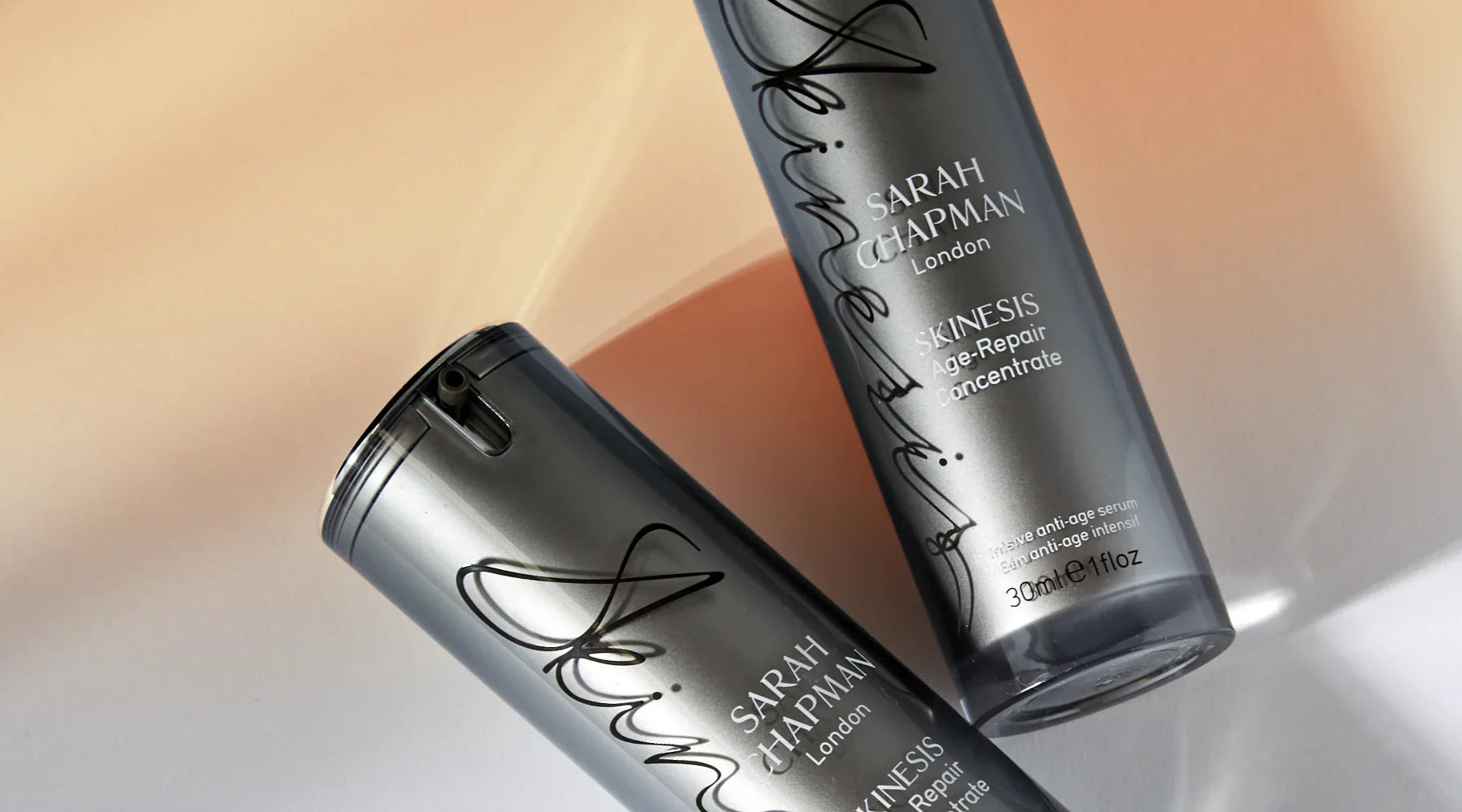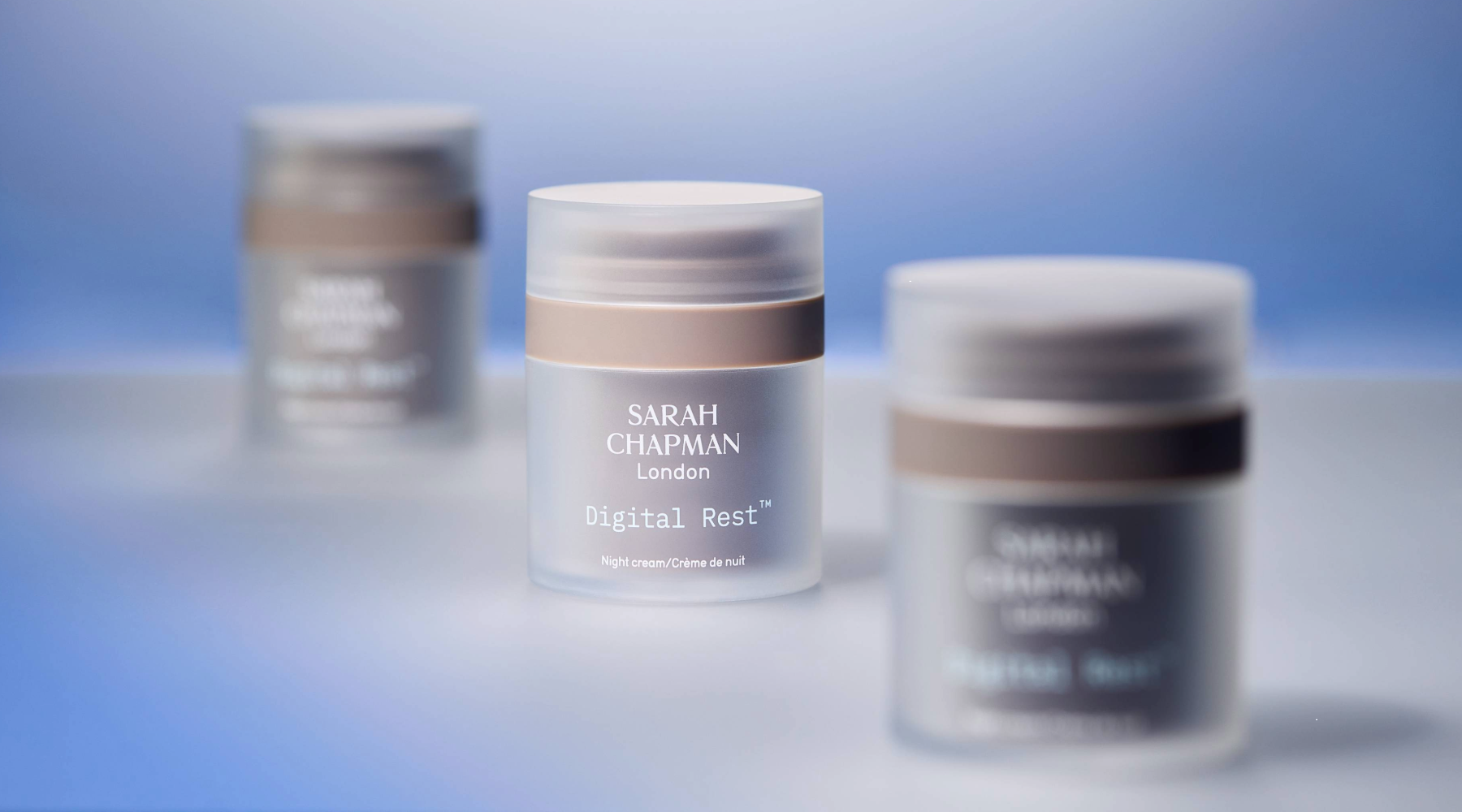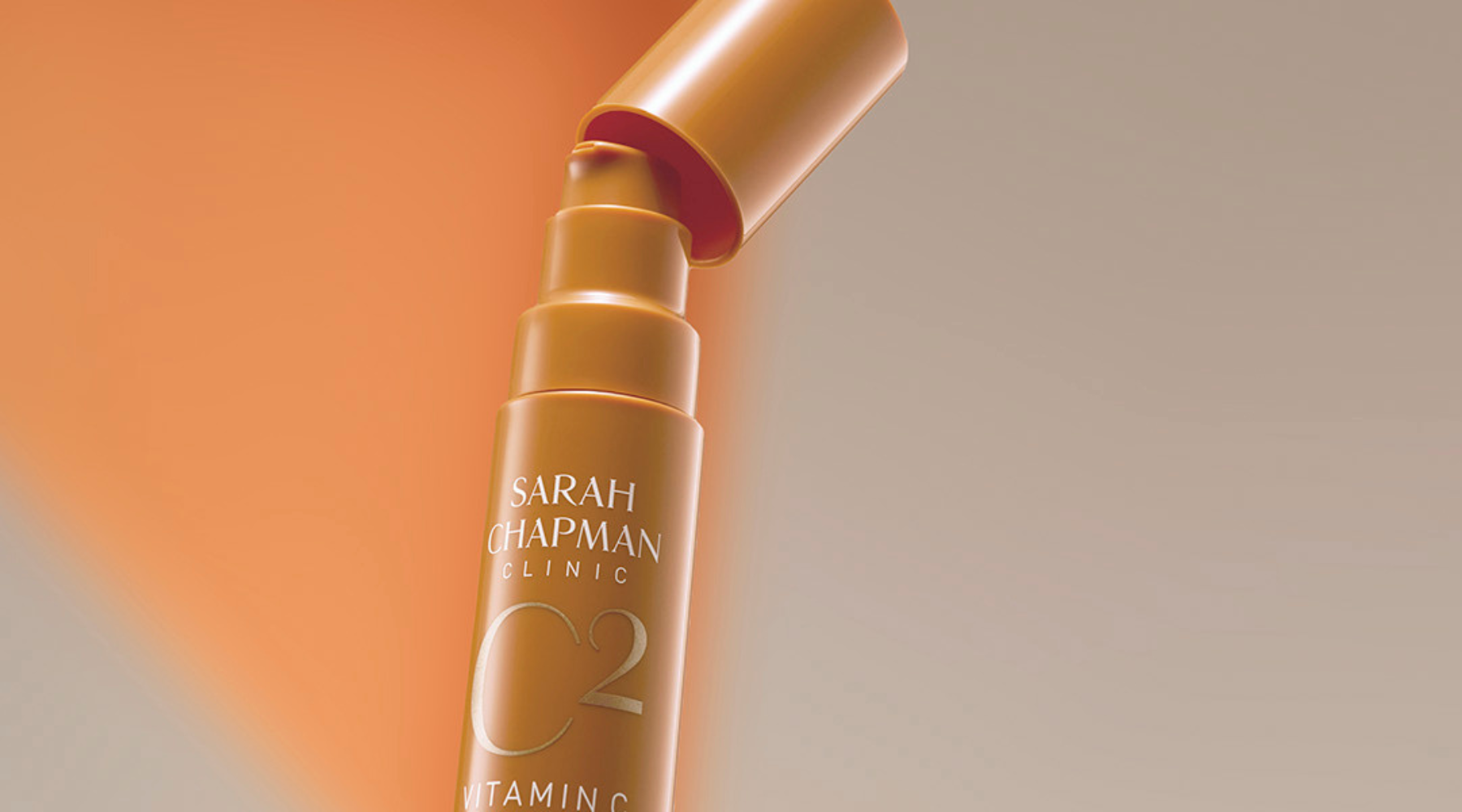
VITAMIN C SKINCARE: THE BENEFITS YOU NEED TO KNOW
You’ve likely read about it, discussed it and even tried it, but have you incorporated vitamin C into your daily skincare routine? If not, it’s time to consider it as a crucial addition. Vitamin C is one of the most studied and efficacious ingredients in skincare. There’s really nothing it doesn’t do which is why it’s a hallmark of every professional skincare routine. So, when addressing long-term skin health and a radiant, refined complexion, we highly encourage the use of vitamin C every day in your routine. Here’s why….
What is Vitamin C?
To understand why vitamin C is such an important skincare ingredient, it’s key to know what it is and how it works. At its most basic, vitamin C is a water-soluble vitamin. It’s essential for various physiological processes, including immune health, wound healing, and collagen formation. It's also a potent antioxidant that protects cells from damage caused by free radicals, which are environmental aggressors like air pollution and UV rays. While you can take vitamin C supplements, applying vitamin C topically (within skincare products) delivers more benefits for skin health than ingesting vitamin C. That said, when used in skincare vitamin C is highly unstable, meaning that when it’s exposed to air, light and heat it breaks down and becomes ineffective. The challenge is in creating a vitamin C-based product that is stable. This can depend on the other ingredients in the formula, the type of vitamin C used and the delivery system that transports vitamin C to the skin cells.
How does Vitamin C benefit skin?
In addition to its status as an antioxidant powerhouse, vitamin C is a true multi-tasker, offering not only protective skin benefits but exceptional regenerative benefits, too. Vitamin C…
-
Fades hyperpigmentation and dark spots
Vitamin C blocks the production of melanin in skin (which gives skin its colour) by inhibiting tyrosinase, the enzyme that is necessary for melanin production. Without sufficient melanin, you’ll see a reduction in hyperpigmentation. Vitamin C also helps to reduce inflammation, which can contribute to dark spots as well.
-
Evens out skin tone
By controlling melanin, vitamin C helps to lighten and brighten dark spots, leading to a more uniform complexion. Additionally, vitamin C's anti-inflammatory properties can help reduce redness and prevent damage from UV rays and environmental factors, further contributing to a more even skin tone.
-
Restores radiance and brightens skin
Vitamin C acts as a very mild exfoliant. It promotes cell turnover by encouraging the production of new ones, leading to faster healing and smoother, more luminous-looking skin.
-
Offers protective, anti-ageing benefits
As a powerhouse antioxidant, vitamin C neutralises free radicals that can lead to premature ageing. Free radicals are unstable molecules generated by external and internal stressors like air pollution, sun exposure, blue light and stress. They can damage cell membranes and DNA and degrade collagen and elastin while also weakening your protective skin barrier over time, leading to the visible signs of aging like fine lines, pigmentation and a lack of radiance. Antioxidants deactivate these free radicals, essentially slowing down skin damage and even preventing it from occurring.
-
Soften fine lines and wrinkles
Collagen is a naturally-occurring protein in our skin that depletes over time. Lower levels can lead to fine lines and wrinkles.Vitamin C is well-known for both boosting collagen production and preventing its degradation, ultimately improving skin firmness and elasticity while smoothing the complexion at the same time.
What’s the difference between Vitamin C and Ascorbic Acid?
Vitamin C is also known as ascorbic acid, which encompasses all forms of vitamin C. As with other skincare actives, such as retinol, there are various forms of the potent vitamin. L-ascorbic acid is the purest and most active form of vitamin C, delivering faster and more visible benefits than any other form. While L-ascorbic acid is proven to be active from just 0.6%, the higher the percentage, the more dramatic results you’ll get. But as you increase the concentration, you may also increase any sensitivity that may occur. And while vitamin C derivatives are often more stable and less likely to cause skin irritation, they too become more prone to causing irritation in higher concentrations.
What type of Vitamin C is best?
As detailed above, vitamin C comes in several forms in skincare, each with varying levels of stability, potency, and suitability for different skin types. In its most pure form as L-ascorbic acid, vitamin C is famously unstable. It quickly breaks down in the presence of light, air and water. This is where vitamin C derivatives can be helpful. Derivatives are slightly altered versions of pure vitamin C. They were developed to work around this issue of instability. L-ascorbic acid has also been known to cause redness, tingling, and irritation in some people whose skin barrier is damaged, or who have particularly dry or sensitive skin; while vitamin C derivatives are commonly less irritating.
How Vitamin C derivatives work:
-
The most biologically active form of Vitamin C that can influence the function of a cell is L-ascorbic acid. It’s the form that your skin can actually use. All the other forms or derivatives require modifications and conversions to become ascorbic acid.
-
These vitamin C derivatives ultimately convert into L-ascorbic acid once they’re in the skin. This conversion process is what makes these forms less active. But, it also makes them much less likely to cause irritation.
-
Some examples of derivatives are ascorbyl tetraisopalmitate, sodium ascorbyl phosphate and tetrahexyldecyl ascorbate or THD ascorbate. They’re still beneficial for skin, they just take a little longer to act and aren’t as immediately potent as the pure form.
-
Some vitamin C derivatives are oil soluble and some are water soluble. Oil-soluble derivatives, like ascorbyl tetraisopalmitate, are more easily absorbed into the skin and can penetrate deeper. They are generally used at lower concentrations and are well-tolerated by sensitive skin. While water-soluble derivatives, like L-ascorbic acid, are more effective in addressing surface-level brightening.
-
It’s important to note that different forms of vitamin C are used at different concentrations. So a 10% L-ascorbic acid-based serum isn’t equivalent to that same percentage of THD ascorbate. Whichever type is used depends on the rest of the product formulation and its delivery system.
Is a higher concentration of Vitamin C better?
Not necessarily. The other ingredients in the formula and the delivery system can impact how effective vitamin C is on skin. In our Clinical C1 serum we’ve used a lower concentration of two forms of vitamin C than standard high-strength serums but still achieve the same results thanks to our unique pharma deep delivery system. What’s more, by combining vitamin C with other ingredients you can amplify its benefits, target multiple skin concerns, and create a more well-rounded skincare formula.
Can everyone use Vitamin C in their skincare routine?
Vitamin C is generally considered safe for all types of skin. But it’s always important to start slowly, using it only once to twice a week and build up skin tolerance. When it comes to how you add it to your existing skincare routine there are no hard and fast rules. Whether you chose to use a vitamin C-infused cleanser, a targeted serum or even an SPF that includes the ingredient in the formula, vitamin C is great if you’re looking for powerful brightening, smoothing and refining benefits. I typically advise using vitamin C during the day, layered under your SPF to give your skin two-fold protection from environmental stressors like pollution, sun exposure and blue light. Equally you can use a vitamin C-infused serum at night when the skin undergoes its natural repair and regenerating processes, to maximize results. Finally, if your skin can tolerate it, you can use your targeted vitamin C serum both day and night to fast-track results even more. As with most skincare actives, when it comes to visible benefits, the key with using any vitamin C serum is consistency.
Why should Vitamin C and SPF always be used together?
When combined, vitamin C and SPF offer a powerful two-pronged defense against sun damage and free radicals. As an antioxidant, vitamin C neutralise free radicals caused by the sun’s UV rays, while a broad-spectrum sunscreen provides a barrier against the harmful rays themselves. Together, they have been shown to offer more effective free radical protection than using either one alone, helping to prevent sunspots, wrinkles, and all other signs of premature aging.
Does Vitamin C increase sun sensitivity?
There is a misconception that vitamin C is photosensitive. The truth is that while vitamin C’s potency can degrade under sunlight this doesn’t increase skin’s sensitivity to the sun. To the contrary, since vitamin C neutralizes free radicals, it actually protects skin against skin damage, photo-ageing and sensitivities. Additionally, vitamin C plays an important role in collagen production and helps with preventing the degradation of collagen.
Should you avoid pairing certain active ingredients with Vitamin C?
Combining vitamin C with other ingredients can actually amplify its benefits, target multiple skin concerns, and create a more well-rounded skincare routine. But the type of ingredient or active matters. It’s a good idea to steer clear of AHAs and BHAs, or apply them at different times to avoid irritation. We’ve paired vitamin C with niacinamide and tranexamic acid in our clinical range of vitamin C serums which ultimately work synergistically to boost not deter skin benefits.
Can you use Vitamin C with retinol?
Retinol and vitamin C both boost collagen production, which ultimately promotes skin health and longevity. When combined together you’ll see even better results.
And so, we think you’ll agree: If you haven’t added vitamin C to your skincare routine yet, now is the time – everyone and every skin can benefit from this multi-tasking ingredient.






